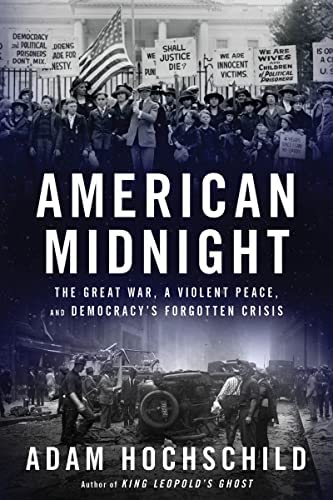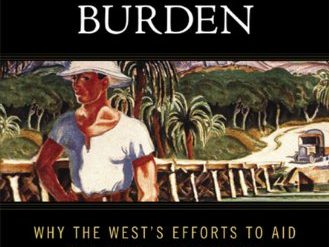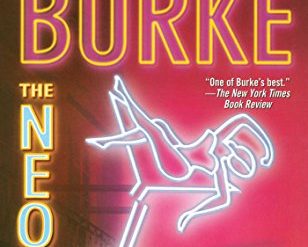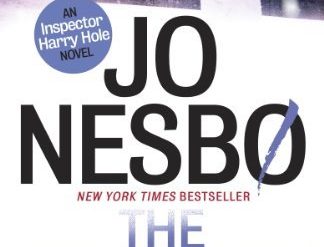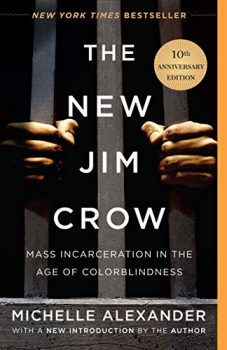
Let’s recognize something at the outset. Neither I, nor anyone, not even the New York Times Book Review, could possibly identify the best books of any decade, let alone the last one. During the period 2010 through 2019, an estimated total of some 30 million books were published. Now, I read a lot—a total of more than 1,300 over the decade. But, like every other reader, I’m selective. So, in the lists that follow you’ll find the books I happened to read and enjoy the most. That’s all I can honestly claim. However, I might add that a great many of these books have won top literary awards, including the Pulitzer, National Book Award, Edgar, Nebula, and Hugo awards. Many have also been New York Times bestsellers.
Five lists appear below that encompass a total of 40 books. The first list includes 20 works of nonfiction. The four lists that follow include five novels in each of several categories: mysteries and thrillers, espionage stories, science fiction, and popular novels. Within each category, I’ve listed the titles in alphabetical order by the authors’s last names. Each title is followed by a link to the review I posted here.
This post was revised on September 10, 2023.
The best books of the decade: nonfiction
The New Jim Crow by Michelle Alexander—Reexamining mass incarceration in America
Now widely viewed as one of the most important political books of recent years, this study of mass incarceration lays the blame for the dysfunction in communities of color at the hands of all those, Democrats and Republicans alike, who were responsible for the draconian laws that gave the United States the dubious distinction of housing more men and women in prison than any other country in the world.
Big Sister, Little Sister, Red Sister: Three Women at the Heart of Twentieth-Century China by Jung Chang—They shaped twentieth-century Chinese history
This revisionist account of the lives of the three remarkable Soong sisters upends the myths about the critical roles they played in the evolution of Chinese history in the twentieth century.
Mary’s Mosaic: The CIA Conspiracy to Murder John F. Kennedy, Mary Pinchot Meyer, and Their Vision for World Peace by Peter Janney—Why did JFK die? The most convincing explanation I’ve ever read
For decades I’ve resisted the conspiracy theories swirling around the murder of John F. Kennedy. This remarkable book has changed my mind about the culpability of the CIA.
AI Superpowers: China, Silicon Valley, and the New World Order by Kai-Fu Lee—The best book about artificial intelligence I’ve read so far
Google “books about artificial intelligence,” and you’ll find a slew of them. Amazon lists 286. Computer scientists, journalists, science fiction authors, and other observers have written on the topic, sometimes insightfully, sometimes not. I’ve read nearly two dozen of these books. But AI Superpowers, the latest one to land on my Kindle, is by far the best.
The Fifth Risk by Michael Lewis—How government protects us from “the most alarming risks facing humanity”
What does government do for us? Do we really need it? What happens if government ceases to do those things? These are the questions Michael Lewis comes to grip with in his powerful little book, The Fifth Risk. By drilling down into the day-to-day realities in a handful of little-recognized federal agencies, Lewis convincingly demonstrates how government protects us from some of “the most alarming risks facing humanity.” By extension, he relates the dangers we (and the world as a whole) now face as the direct result of inattention, greed, and misguided policy by the Trump Administration.
1491: New Revelations of the Americas Before Columbus by Charles C. Mann—Astonishing new evidence about the Americas before 1492
Forget just about everything you learned in school about the peoples who lived in the Western Hemisphere before 1492—and about the land, too. It turns out that yesterday’s historians, anthropologists, paleontologists, and ecologists got it pretty much all wrong.
Dark Money: The Hidden History of the Billionaires Behind the Rise of the Radical Right by Jane Mayer—How the Koch brothers are revolutionizing American politics
As Warren Buffet has said, “There’s class warfare all right. But it’s my class, the rich class, that’s making war, and we’re winning.” The Koch brothers are at the very center of the war machine.
Forgotten Ally: China’s World War II, 1937-1945 by Rana Mitter—A gripping history of China in World War II
Read just about any popular history of World War II, and you’ll find any number of references to the Allies as the Big Three of Britain, the US, and the Soviet Union. What’s missing is recognition that China bore nearly as high a price as the USSR, with an estimated fourteen to twenty million dead compared to fewer than half a million for the UK and the US.
Why the West Rules—for Now: The Patterns of History, and What They Reveal About the Future by Ian Morris—Is history too important to leave to historians?
Building on Jared Diamond’s thesis in Guns, Germs, and Steel, the archaeologist IanMorris laays out his own, more comprehensive view of the course of human history, reaching back 15,000 years and venturing into the 22nd Century.
The Emperor of All Maladies: A History of Cancer by Siddhartha Mukherjee—A cancer researcher looks at the disease most of us fear above all
Dr. Mukherjee, a cancer researcher with clinical experience, surveys the “history” of cancer from Imhotep to the present day but, as he points out, this book more nearly resembles a biography than a history. He combines moving personal experiences, historical vignettes, biographical sketches of some of the fascinating individuals who have advanced our understanding of cancer, and wonderfully articulate explanations of complex scientific matters.
The Library Book by Susan Orlean—An arson fire, the expanded role of libraries, and eccentric librarians
Even if you’re not a passionate devotee of public libraries, you’ll be enchanted by this beautifully researched history of the Los Angeles Public Library, the eccentric librarians who have sometimes run it—and the fire that nearly destroyed it more than thirty years ago.
Top Secret America: The Rise of the New American Security State by Dana Priest and William M. Arkin—Concerned about NSA surveillance? Read this book!
Dana Priest and Bill Arkin have written a book that, in a rational world, would usher in an orgy of housecleaning through the far reaches of the Pentagon, the CIA, the NSA, the FBI, the Department of Homeland Security, and every other department, agency, or office that pretends to be involved in strengthening our national security. Too bad we don’t live in a rational world.
Subversives: The FBI’s War on Student Radicals, and Reagan’s Rise to Power by Seth Rosenfeld—J. Edgar Hoover, Ronald Reagan, and the violence in 1960s Berkeley
We’ve known for some time that the FBI and Ronald Reagan’s gubernatorial administration were involved in the sometimes-violent conflicts that roiled Berkeley in the 60s. What we didn’t know—or, at least, what I didn’t know—was that J. Edgar Hoover and Ronald Reagan were personally and directly engaged not just in monitoring but in managing the secret government campaigns that helped raise the temperature to the boiling point again and again. Investigative journalist Seth Rosenfeld’s exhaustively researched book, Subversives, documents this story in often minute detail yet manages to keep it eminently readable.
The Loudest Voice in the Room: How the Brilliant, Bombastic Roger Ailes Built Fox News—and Divided a Country by Gabriel Sherman—Roger Ailes: the man who built Fox News and divided America
Roger Ailes built the Fox News network beginning in 1996 and subsequently:
- Helped swing the 2000 election to George W. Bush
- Became Rush Limbaugh’s executive producer and a personal friend
- Put Glenn Beck on national television
- Championed the rise of the Tea Party
- Promoted partisan gridlock on Capitol Hill and throughout the country
- Made billions of dollars for his boss, the media mogul Rupert Murdoch
The Immortal Life of Henrietta Lacks by Rebecca Skloot—The dark side of medical history
The Immortal Life of Henrietta Lacks is extraordinary on several levels: as a beautifully researched work of medical history, as a portrait of the profound impact of racism in America, and as a brutally honest first-person account of a writer’s challenging, decade-long struggle to write a serious book.
The First Tycoon: The Epic Life of Cornelius Vanderbilt by T. J. Stiles—The first robber baron and the emergence of the corporation
He was the first robber baron. Other familiar names associated with the nineteenth century—John D. Rockefeller, Andrew Carnegie, J. P. Morgan—were young men in the early days of their careers when he was at the peak of his fame. Following the Civil War, he became the richest person in American history, and to this day remains the second-richest, bested only by Rockefeller.
The Devil’s Chessboard: Allen Dulles, the CIA, and the Rise of America’s Secret Government by David Talbot—When America’s secret government ran amok
Investigative journalist David Talbot has written an eye-opening biography of the CIA’s first Director, highlighting the many ways that the agency violated US statutes, international law, and American values.
The Big Nine: How the Tech Titans and Their Thinking Machines Could Warp Humanity by Amy Webb—An artificial intelligence skeptic paints a chilling picture of a future dominated by AI
It would be hard to find a better-credentialed person to view what human society can expect from the future of artificial intelligence. That’s the subject of Amy Webb’s superb new book, The Big Nine.
Educated: A Memoir by Tara Westover—A remarkably candid memoir about growing up survivalist
If you grew up in a comfortable middle-class home, as I did, you may be shocked by Tara Westover‘s Educated, an account of her childhood and adolescence in a Mormon survivalist family in Idaho. I was. Again and again, I found my jaw dropping at the cruelty, ignorance, and superstition surrounding her. Yet Westover did far more than survive survivalists. Despite never attending school and receiving virtually no home-schooling, she has secured a PhD in intellectual history and political thought from Cambridge University. And two of her six siblings have PhDs as well. Her memoir, Educated, is an astonishing testament to the power of human potential.
The Invention of Nature: Alexander von Humboldt’s New World by Andrea Wulf—The man who described climate change—in 1800
He was the most famous man in the world, and more places around the world are named after him than anyone else. To many of the giants of his time—Johann Wolfgang von Goethe, Thomas Jefferson, Simon Bolivar, Charles Darwin, Henry David Thoreau—he was a colossus whose genius overshadowed their own.
The best books of the decade: mysteries and thrillers
November Road by Lou Berney—A desperate woman, a passel of gangsters and JFK’s assassination
Berney’s protagonist, Frank Guidry, is Carlos Marcello‘s man. Marcello ran the New Orleans crime family for four decades. Wikipedia notes that “Credible investigators, mob figures, Robert F. Kennedy and the Federal Bureau of Investigation reportedly believed Marcello masterminded the 1963 assassination of President John F. Kennedy”—that gangsters killed JFK. In November Road, Frank is charged with helping Marcello to clean up after the murder, eliminating any evidence that leads back to him.
The Lost Man by Jane Harper—A superb murder mystery set in the Australian outback
Imagine a whodunit without a detective, or an investigator of any sort, for that matter. Take a family of three brothers, their mother, one wife, two young children, and a long-time hired hand. Now, one of the brothers has died. Did he commit suicide? Or was it murder? And if it was, who did it? Was it someone in the family . . . or a woman out of the murdered man’s past? Yes, this is a mystery as puzzling as you’ll find in any detective novel. And Jane Harper tells the tale beautifully.
Bluebird, Bluebird by Attica Locke—A compelling tale of murder, race, and family secrets by Attica Locke
Bluebird, Bluebird highlights the uneasy relationships between black and white in a Texas town still in the vise of history. “Forty-some years after the death of Jim Crow, not much had changed,” writes Locke. Given the setup, it would be natural to expect the two deaths (which are in fact murders) to be racially motivated. Race is a central factor—but in ways that are too complicated to imagine as the story begins to unfold.
The Widows of Malabar Hill (Perveen Mistry #1) by Sujata Massey—The first woman lawyer in Bombay solves a baffling mystery
Perveen is six months into her work as a solicitor in her father’s firm, Mistry Law. Because her father is busy elsewhere, she follows up on a puzzling case involving three widows who live in purdah. Their husband had died recently, and it looked as though the young man he had appointed to run the household was trying to cheat the widows out of their inheritance. With great difficulty, Perveen gains entry to the section of the house on Malabar Hill where the widows live. But soon her investigation runs afoul of the head of the household. And then murder enters the scene.
The Crow Girl by Erik Axl Sund—Pedophiles, serial murder, and the Holocaust in a Swedish psychological thriller
It’s difficult to exaggerate just how complicated this story is. It’s a tale about pedophiles, serial murder, unhappy marriages, dissociative identity disorder, a fundamentalist Christian sect in Lapland, the Great Famine in the Ukraine, the Holocaust, and Swedish police procedures. Got that? No? I understand. I could never have imagined a single story linking all these themes.
The best books of the decade: espionage stories
Transcription by Kate Atkinson—Kate Atkinson’s latest is a beautifully written spy story
The story revolves around Juliet Armstrong. We meet her in 1981 as she nears 60 years of age. But the formative events in the plot occur three and four decades earlier, when Juliet had been recruited as a typist by MI5. Ten years later, we find her working as a children’s radio producer for the BBC, when her wartime work comes back to haunt her. However, we don’t learn the full story until nearly the end of the book. It you read it, prepare for a shock.
The Trinity Six by Charles Cumming—A stellar new spy story by Charles Cumming
Much of the latter-day literature of espionage is based, directly or indirectly, on the notorious Cambridge Five — young, bright Cambridge men seduced by the lure of Communism as undergraduates during the tumultuous 1930s who spied for the Soviet Union during World War II. Their defection to the USSR following the war created what was arguably the greatest spy scandal in modern history. For many years thereafter, rumors of a “sixth man” continued to roil the waters of the British Secret Intelligence Service. The Trinity Six relates an ingenious story about that sixth man and his longer and even more consequential career.
Munich by Robert Harris—Why Neville Chamberlain went to Munich
Mention Neville Chamberlain and Munich in the same breath today, and you’re likely to elicit a grimace. The agreement in 1938 between the British Prime Minister and Adolf Hitler to dismember Czechoslovakia is regarded as one of the most shameful and tragic events of the 20th century. But is it fair to condemn Chamberlain without understanding his motivation or the context of the times? The British thriller author Robert Harris has been exploring that question for thirty years. The result is his new novel, Munich. The book is not an alternative history like his popular novel, Fatherland. It’s fact-based historical fiction.
Red Sparrow (Red Sparrow Trilogy #1) by Jason Matthews—Authentic espionage tradecraft in this gripping novel by a CIA veteran
Red Sparrow is not a conventional spy story. True enough, it’s well-written, ingeniously plotted, and endlessly suspenseful. On that account alone, fans of John le Carré, Joseph Kanon, or Alan Furst should appreciate it. But the book rises above the level of the genre because the author has infused it with detailed, intimate knowledge of authentic espionage tradecraft employed both by the CIA and by Russia’s Foreign Intelligence Service, the SVR.
A Firing Offense by David Ignatius—A suspenseful espionage story about journalists and spies
It’s not unusual for journalists to turn to writing mysteries and thrillers. After all, some of the best-known names in the business began their careers in journalism, including John Sandford, Michael Connelly, and Daniel Silva. However, nothing I’ve read so far comes close to the nitty-gritty detail about the practice of journalism that Washington Post editor and columnist David Ignatius builds into in his suspenseful 1997 spy story, A Firing Offense.
The best books of the decade: science fiction
The Windup Girl by Paolo Bacigalupi—One of the best science fiction novels I’ve ever read
The action takes place in Bangkok sometime in the 23rd century. Sometime in the past, the oceans have risen twenty feet or more, and the city survives only because a visionary Thai king has built an enormous seawall, dikes, and pumps to hold back the waters of the annual monsoon. Genetic engineering has run amok around the globe, and the Thai Kingdom is one of few countries, perhaps the only country, still resisting the “calorie companies,” powerful food-exporting corporations headquartered in the American Midwest and in China. Having killed off virtually all traditional sources of food—and hundreds of millions of people—with genetically engineered plagues to increase their leverage in the market, the calorie companies hungrily eye Thailand and its own independent success in creating new fruits and nightshades capable of resisting the ubiquitous plant-killers.
The Long Way to a Small, Angry Planet (Wayfarers #1) by Becky Chambers—A delightful modern space opera that’s all about character development
Now a young American author, Becky Chambers, has come onto the scene with the first two novels in a modern space opera series, with a third on the way later this year. The series debuted with The Long Way to a Small, Angry Planet, a delightful departure from all the bad habits exhibited in the genre’s infancy. (She was able to finish writing the book only by raising the necessary money from 83 generous souls on Kickstarter.) Chambers’ characters are beautifully complex, the dialogue often sings, and her detailed and fascinating future universe emerges seamlessly from the story.
The Calculating Stars (Lady Astronaut #1) by Mary Robinette Kowal—This novel shows just how good hard science fiction can be
The excitement starts early in The Calculating Stars when a meteorite smashes into the ocean off the mid-Atlantic coast and takes out most of the Eastern Seaboard of the United States. Dr. Elma Wexler York is pressed into service to calculate the size and weight of the meteorite to help prove to the Army that the Russians weren’t behind the tragedy. And in the process of running those calculations, she discovers that the explosive impact of the meteorite represents an extinction event. To assure its survival long-term, humanity must build colonies on other planets. And eventually the US government, and finally most of the rest of the world, sets out to do just that.
Station Eleven by Emily St. John Mandel—Life on Earth after the apocalypse
St. John Mandel’s story unfolds in a rapid succession of short scenes in the post-apocalyptic world along the shores of Lakes Huron and Michigan 15 and 20 years after the collapse. “Collapse” is the popular term for the apocalypse brought on by a pandemic. “Civilization in Year Twenty is an archipelago of small towns. These towns had fought off ferals, buried their neighbors, lived and died and suffered together in the blood-drenched years just after the collapse, survived against unspeakable odds and then only by holding together into the calm, and these places didn’t go out of their way to welcome strangers.”
The Children of Time by Adrian Tchaikovsky—Accelerated evolution is the theme in a superior science fiction novel
Now, the technology of the Old Empire has been lost to time. Mere hints of that technology are accessible only to the classicists who labor to translate the old, dead languages of the meager records that survived the Empire’s destruction. But the toxic wastes the war left behind have gradually rendered Earth lifeless. Now humankind cannot rebuild where it has lived for millions of years. The remnants of the human race have set out to relocate elsewhere in starships, each of which houses a half-million people in stasis.
The best books of the decade: popular novels
Half of a Yellow Sun by Chimananda Ngozi Adichie—Love, loss, and war in post-independence Africa
Half of a Yellow Sun recounts the events of the 1960s that culminated in the lopsided Biafran war of independence (1967-70) that pitted the ill-equipped Igbo (Ibo) people of southeastern Nigeria against the massive forces of their national government, actively backed by the British. This is the gripping story of twin Igbo sisters, Olanna and Kainene, daughters of a Nigerian “Big Man” who has accumulated great wealth through corruption; their lovers, Odenigbo and Richard, the one an Igbo professor of mathematics who preaches revolution, the other a Brit and would-be writer; and young Ugwu, a villager who grows to manhood as Odenigbo’s houseboy.
All the Light We Cannot See by Anthony Doerr—This superb Pulitzer Prize-winner deserves the award it won
Here is a wildly original boy-meets-girl story. Two teenagers are caught up in the frenzy and the mortal dangers of World War II: a German boy who is extraordinarily clever with all things electronic, and a blind French girl who reads Jules Verne. Author Anthony Doerr explores the trajectory of their lives in parallel, moving them inexorably toward a fateful intersection in the book’s surprising climax. Like millions of other Europeans, Marie-Laure LeBlanc and Werner Pfennig are victims of the war, but their stories are fresh: these are uniquely drawn individuals, each masterfully portrayed by a writer at the top of his form.
The Orphan Master’s Son by Adam Johnson—An unsparing tale of life in the living hell of North Korea
Johnson’s Orwellian story surveys life in an orphanage; the experience of a tunnel rat, trained in hand-to-hand combat in the tunnels leading under the DMZ to South Korea; espionage and kidnapping trips to Japan in “fishing boats”; the life and lifestyle of the country’s elite military commanders and of the Dear Leader himself; the vain efforts of an official torturer to retain his humanity; and the semblance of life that is existence in a North Korean prison mine, where citizens who run afoul of officialdom are worked to death underground with picks and shovels.
The Thousand Autumns of Jacob de Zoet by David Mitchell—A beautifully written tale of love, courage, and faith
Imagine yourself in a land far, far away, in a time long passed from memory. Now imagine this: Napoleon Bonaparte is striding across Europe, and the fledgling American republic is edging ever closer toward the expansionist vision of Thomas Jefferson. The Dutch East India Company is gasping its last breath. The Dutch mercantile empire, already shadowed by the mighty British Navy, has gone adrift as its homeland succumbs to the little Corsican general. In this fateful time, as the world slips from the 18th century into the 19th, you find yourself in a tiny Dutch trading post stranded on the shores of Nagasaki. You’re there through the magic of a brilliant historical novel.
The Sympathizer by Viet Thanh Nguyen—The Vietnam War through Vietnamese eyes
The Sympathizer opens in April 1975 as troops of the North Vietnamese army and the National Liberation Front (Viet Cong) are closing in on Saigon. The remnants of the American mission and many thousands of South Vietnamese officials and other collaborators are frantically fighting to claim the few remaining spaces on American airplanes available for the evacuation. In the midst of this chaos we meet the narrator, a captain in the South Vietnamese army. He introduces himself this way in the opening line of his account: “I am a spy, a sleeper, a spook, a man of two faces.” He is, in fact, the Sympathizer of the title — a secret agent of the NLF actually living in the home of the General who commands the South Vietnamese security police.
For related reading
You might also enjoy reading:
- Top 10 historical mysteries and thrillers
- The 10 top espionage novels
- Great sci-fi novels reviewed: my top 10
- Great biographies
And you can always find my most popular reviews, and the most recent ones, on the Home Page.


